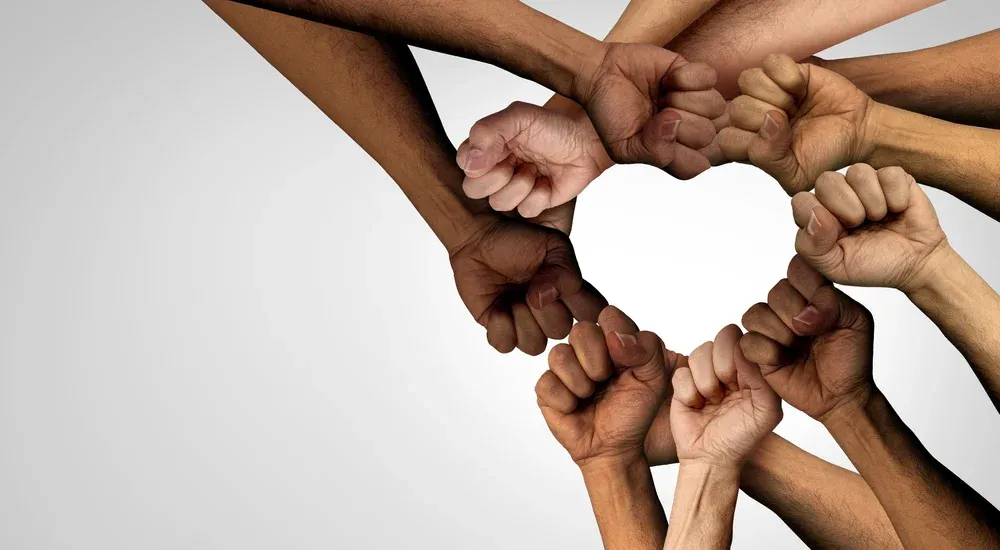Social Justice and Evangelism
Believe it or not, there is an intersection where social justice and Christian evangelism cross paths. In these times of Black Lives Matter and the MeToo movement, some people have questioned what the church is doing.

I think a part of the problem with that question is that there seems to be a perception that one single leader will emerge who will lead the people to the kingdom or at least the promised land. But the world doesn’t need another Messiah. Jesus already came, and one day, He is coming back. Until then, Christ is looking for the church to do what he has commanded the church to do, and that is to proclaim the Good News in a world full of bad news.
This proclamation of the good news can not just occur with words. This proclamation has to be a call that is followed by action. This call is literally a call to action. And the action that the church needs to take in this day is to find the intersection between social justice and evangelism. After all, at its core, the Christian faith teaches that all people are created in the image of God and are, therefore, valuable and deserving of dignity and respect. This means that Christians are responsible for working for justice and addressing the social and economic inequalities that exist in the world.
So here are a few ways where social justice and Christian evangelism can intersect:
One of the first ways can be Christians using their voice and resources to advocate for policies and practices promoting social justice. This might include things like fighting against racism, working for fair wages and worker protections, or advocating for policies that address poverty and economic inequality. Personally, I do this by meeting with local politicians, local employers, and local community service providers. This does not require that I hold a news conference by calling television stations or newspapers. Often it involves a quick lunch or conversation that leads to a relationship for the purpose of helping the community. The added benefit to this kind of meeting is that there is always the opportunity to invite the people providing services to the church.
Another way Christians can demonstrate their commitment to social justice is by serving others in practical ways. This might include volunteering at a homeless shelter, working in a food pantry, or providing resources and support to those who are struggling. But, again, not everything has to be on the grandstand. There do not have to be any social media posts or selfies. Just a sincere heart and sincere service to those in need. And in the same way, as with those that provide services, an invitation to attend church is always appropriate for those receiving services.
Because evangelism is sharing the good news of Jesus Christ with others, Christians can use all of these opportunities to convey a message of hope and redemption and call people to work for justice and seek the well-being of all people. My point is that there is a cross point, and the cross point points to the cross. By working for justice and sharing a message of hope and redemption, Christians can positively impact the world and demonstrate the love of Jesus Christ.
A scripture to support this can be found in the Gospel of Matthew.
The Bible says,"For I was hungry, and you gave me something to eat, I was thirsty, and you gave me something to drink, I was a stranger, and you invited me in, I needed clothes, and you clothed me, I was sick, and you looked after me, I was in prison, and you came to visit me.' Then the righteous will answer him, 'Lord, when did we see you hungry and feed you, or thirsty and give you something to drink? When did we see you a stranger and invite you in, or needing clothes and clothe you? When did we see you sick or in prison and go to visit you?' The King will reply, 'Truly I tell you, whatever you did for one of the least of these brothers and sisters of mine, you did for me.'" (Matt 25:35-40)
In this passage, Jesus teaches that when we care for the least of these, we are caring for Him. This includes feeding the hungry, giving drink to the thirsty, welcoming strangers, clothing the naked, caring for the sick, and visiting those in prison. By doing these things, we are showing love and compassion to others and are also living out the gospel message.
This scripture demonstrates that social justice and evangelism are interconnected. When we work for social justice and care for those who are marginalized and oppressed, we embody the love of Christ and demonstrate the transformative power of the gospel. So likewise, by working for social justice and evangelizing, we can make a positive impact in the world and bring hope and healing to those in need.
So if someone ever asks you what the church is doing in response to social issues, you can tell them to read Matthew 25:35-40.
About the Author






